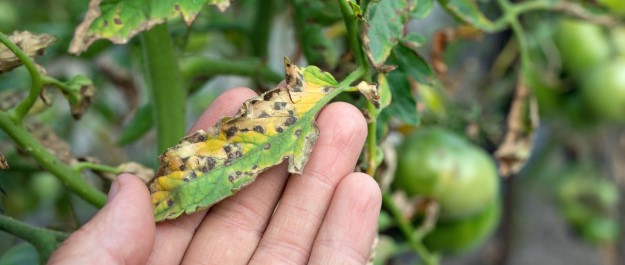Robotically-enabled Plant Virus Diagnostics

Plant viruses decimate a range of food and non-food crops worldwide. Empowering farmers and growers to take early action against outbreaks is vital to sustainably control plant health epidemics.
The challenge
Agricultural pests damage crops and spread plant diseases, compromising food security. Climate change, changing agricultural practices and globalisation are altering pest populations, enabling spread into new areas and increased numbers. Chemical pesticide use is driving resistance, degrading nature and reducing biodiversity.
The impacts of plant viruses are often widely underestimated and detection and monitoring can be challenging without specialist molecular biology skills and equipment. Empowering farmers and growers to take early action against plant virus outbreaks is necessary to more sustainably control plant health epidemics.
What we're doing
This project will develop a proof-of-concept automated, robotically-enabled plant virus diagnostics system using state-of-the-art molecular diagnostic methods. This will be a first step to developing a solution for farmers to monitor the emergence of specific plant viral infections in their crops, without the need for specialist molecular diagnostic skills. Robotic automation will enable consistent and regular surveillance of disease emergence over the cropping season to support early intervention and reduce crop losses. We will co-develop the concept with local end-user and commercial partners, and test the system in controlled and field settings.
How it helps
This robotic diagnostic assembly will an provide a proof-of-concept automated early warning system to detect specific plant virus outbreaks. This is key to empowering farmers to take timely, targeted, sustainable control measures against pests/diseases, supporting international efforts to reduce chemical pesticide use in farming. The farming sector can benefit greatly from robotics-powered technology, to combat dwindling workforces and net zero challenges, alongside the need to produce more food to feed the planet.
Investigators
- Dr Nina Ockendon-Powell, School of Biological Sciences
- Dave Megson-Smith, School of Physics
 Lead researcher profile
Lead researcher profile
Dr Nina Ockendon-Powell, School of Biological Sciences
Related research centres
Partner organisations
- The Community Farm
- Natural Resources Institute
- Optigene
Funders
- Cabot Institute for the Environment Seedcorn Fund